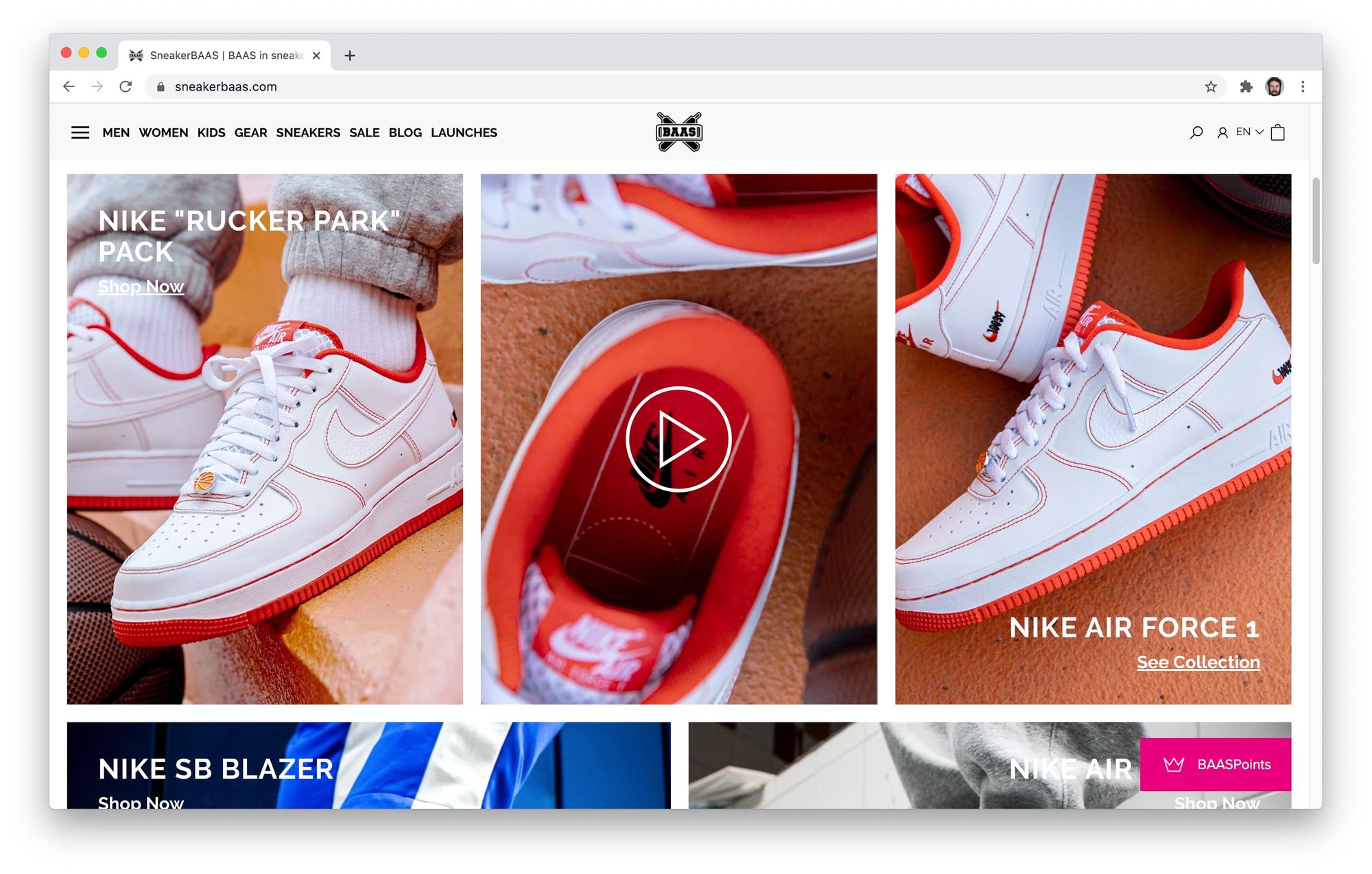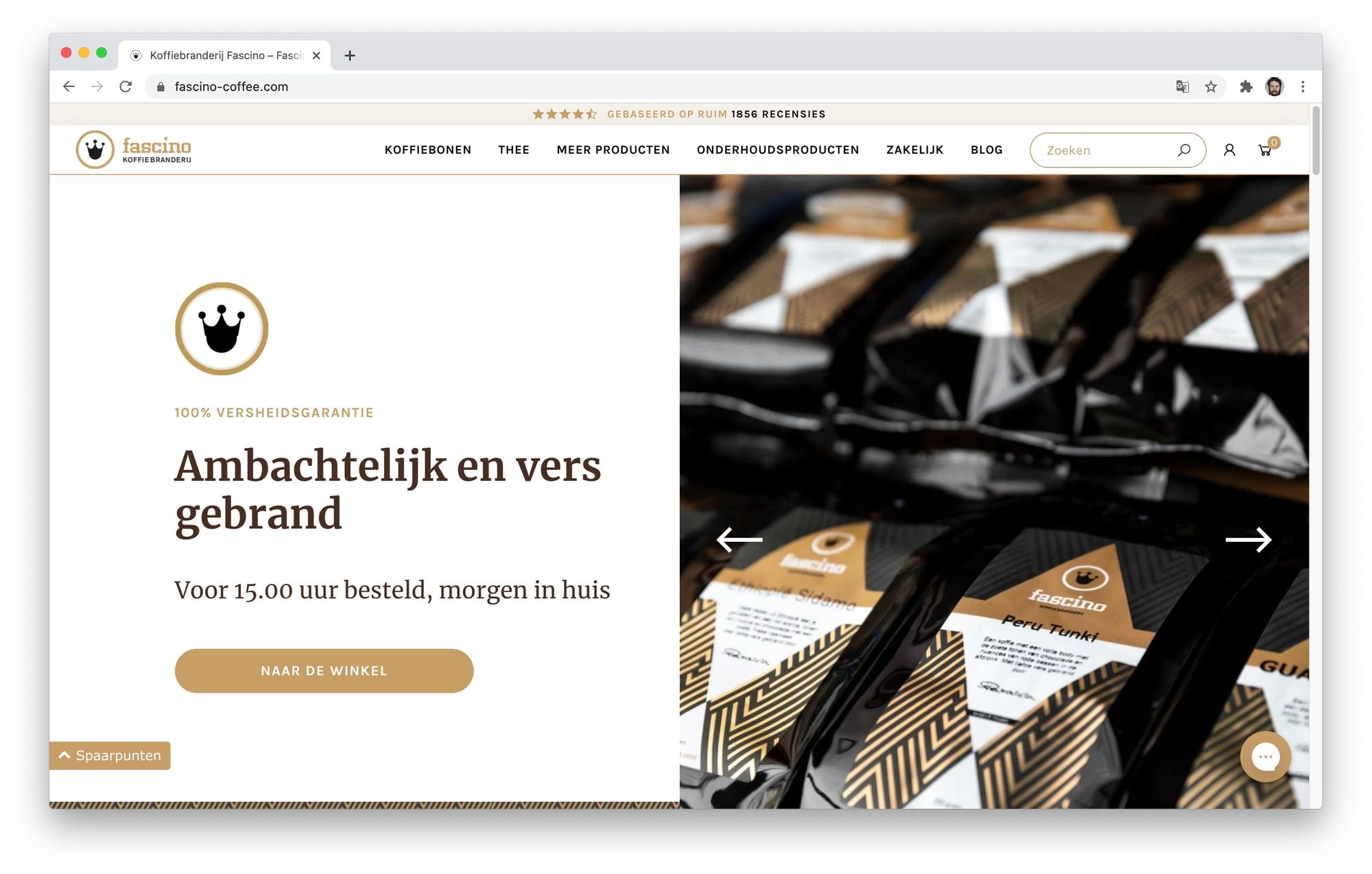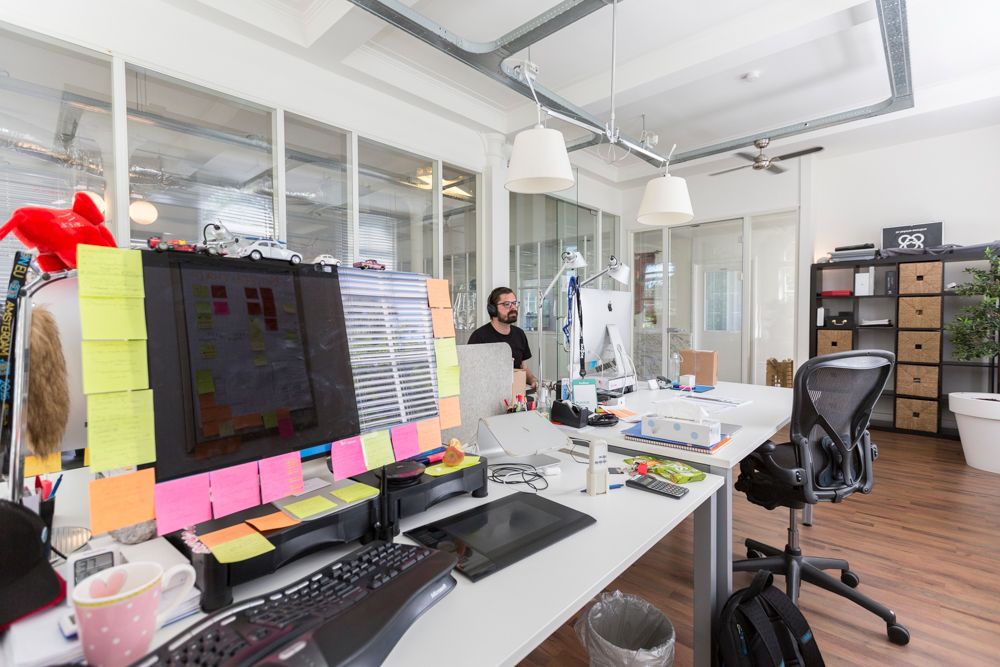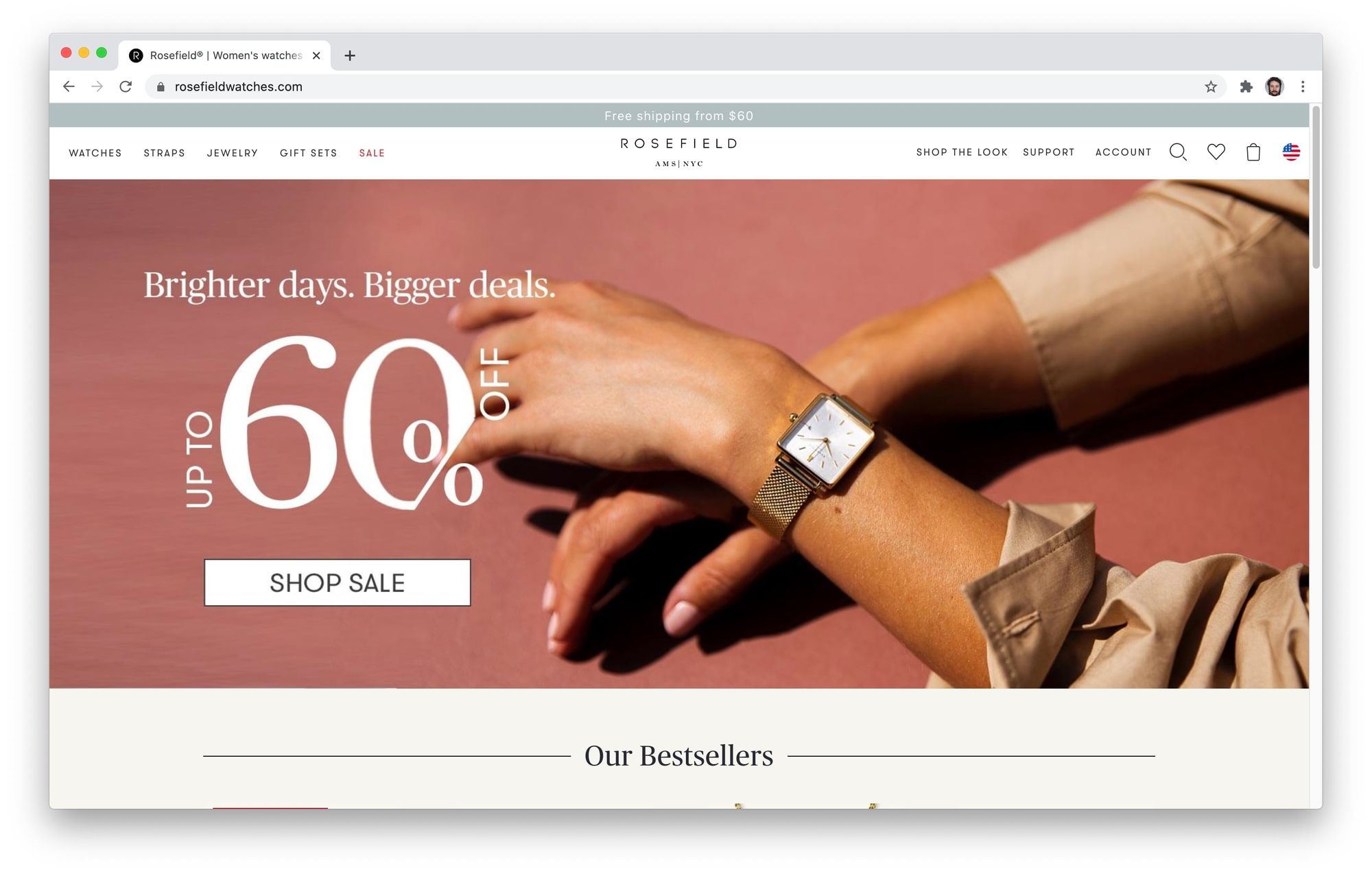Behind the Shop: Bob Rockland, CODE

In our Behind the Shop series, we take a closer look into the people that have been building your favorite online stores.
The ecommerce and online shopping revolution rages on. We usually only encounter the storefronts, so we asked ourselves: who are the storebuilders behind the scenes? And what can they teach us about building the perfect online store?
This time around, we talked to Bob Rockland, partner and CCO at the Netherlands’ 1st Shopify Plus Partner and expert web development agency, CODE.
Could you please introduce yourself and tell us a little bit about what it is that you do at CODE
Sure. Our company, CODE, has already been around for 15 years. We have a history in building very complex websites. When we started out, we had our own CMS, our own software development platform. At the time, there weren’t any platforms around like Shopify, Magento or WordPress.
Fast-forward to roughly four years ago we came into contact with Shopify, by accident.

At the time, we were also looking to find better focus, because we were doing a lot of different things. Working on big data, websites, applications, iPhone apps. We wanted to get more focused, because we had a lot of varied, but diffuse knowledge.
When we first encountered Shopify, we tried to sell a few sites, which was quite difficult. But slowly we started to get our first assignments. We were approached by the first Magento websites wanting to replatform to Shopify. Some of those were immensely successful, like DutchGrown. From there on out, it became an exciting new journey.
In 2018, we decided to move the whole company to Shopify, because it went so well. That year, we said goodbye to our other clients, in a cordial way, of course. We moved them to other agencies, who were very happy getting new clients.
Roughly at the end of 2018, we were a 100 percent Shopify agency, which we still are.
Clever move, especially seeing what's happening with Shopify right now. Could you tell us some more about your role at CODE?
I used to be a developer - a pretty big one - but not anymore. Younger developers are moving a lot faster than me. I haven't developed for three years; sometimes I dabble in the evenings, but nothing to brag about.
Now, I focus on the commercial side of selling Shopify to our customers. This works very well because I am an ex-developer. I know what a database is, what the front-end is, and how you build these things.
You can do the technical sales pitch for your customers.
Yes. I understand what our customers need and I can translate this very easily, since I understand both the e-commerce and the technical side of things.
Take Shopify apps, for instance. We’ve tested or used a lot of apps ourselves, which is how we find cool, new apps. We prefer using as few as possible. Ideally, we use zero apps, but you do need some.
Using too many apps is a common pitfall we see among Shopify users. Many clients come to us with 30-40 apps. They tell us they’re unsatisfied with Shopify, because it's so slow. This is mostly caused by the front-end apps.
The back-end apps, apps that only talk to the API, like an email, PIM or ERP system, don’t really hurt the performance, but the front end apps do, so you have to be careful. My experience as an ex-developer allows me to easily advise clients on these nuances.
We're seeing a lot of people abandoning Magento and WooCommerce and moving to the Shopify platform. What are you guys doing to take advantage of that trend?
We did over 50 Magento to Shopify migrations, as well as some WooCommerce, Prestashop, Intershop, and even Salesforce Commerce Cloud to Shopify migrations. Clients mostly come to us themselves. We write blogs about these specific migrations and that's more or less enough.
Could you give an example of a recent project that you did, like a store that moved from Magento or Commerce Cloud to Shopify, that you helped from A to Z?
We moved jewellery and watch brand Rosefield from Magento to Shopify Plus, for 10 countries. We did SneakerBAAS, which was really nice. We provided them with three websites: a Dutch one, a global .com domain, and we built a separate raffle website on Shopify, very easily and it's really successful now.

Another example is Fascino Coffee, a company from Limburg. Really nice people. So when you order coffee now, they go to the machine and they roast it for you. Super fresh. And the person who roasts the coffee writes it on the package and then ships it to you. Same day, if you order before three o'clock.
Fascino Coffee was on Magento, and even moved to Magento 2. Last January, they had to spend 4k on a critical update. It's a small company, and there were constant issues with the website. This meant the owner - who can roast really nice coffee - was fixing bugs and talking to the developers all the time. We migrated her business to Shopify, and the revenue doubled.
You know what she's doing today? Roasting coffee, instead of fixing bugs and talking to developers. She's extremely happy. The revenue increase was incredible. We drink Fascino Coffee at the office now, too - we love it.
What's your view on building your own e-commerce development team versus working with a dedicated agency? Where’s the tipping point?
That's an easy question. I think, as an agency, we are very focused and, as I said before, we have all this varied knowledge.
I suggest only building your own development team, if you have at least three developers who can work a minimum of 24 hours a week on your website. If you have that much development work, of course.
If you only have access to a single developer, that can get quite dangerous. Your whole website will depend on one person’s knowledge of the code, much of which will live inside their heads, especially if they introduce their own hacks and workarounds.
This developer leaving, for whatever reason, means your website is in trouble. So you need at least two - so they have to make documentation. But three is even better.
Otherwise, we can be your company’s development team. As a company, we now have thirty five people, let's say 30 developers. So you can choose from 30 developers, and still have your own development team.
Some Magento shops that came to us who worked with one-person agencies that, for instance, decided to move to Australia. Which means you get a massive time difference, your developer is at the beach all the time, instead of fixing your shop. We offer a solution to that situation.

If you like this article, show us some ❤️ and tweet about it by clicking here 👈
Good point. The Shopify development space is a little crowded, already, with lots of smaller agencies, specialists, and experts. CODE focuses on Shopify and Shopify Plus, alone. What makes your process unique?
As a serious Shopify agency you should definitely have your own theme, instead of using those in the theme store. If you really want to develop quickly and stably while remaining in control, you simply need your own codebase.
Every serious Shopify Plus agency has their own theme. It’s also a very important part of keeping the developers happy. Developers don't like to work in themes you buy. They're all different and they often aren’t programmed in the way you're used to.
It’s resource consuming to find out: how did they do this? How can I change the menu? Sometimes things are rendered via HTML, the other time, via Javascript or some other exotic technique.
You need something stable. We develop our own theme, working 20 hours a week on new features. And next to that, we also have a very powerful apps 'base' to work from. Twenty five percent of our work is building our own apps, and apps for clients. We have now three going to the app store, and some private ones. We're working on some very good ones, at the moment.
And is that enough to stay relevant to your customers? Any other things that you're working on in order to stay relevant to your clients?
We try to scale our clients up to new heights in what we call ‘evolution sprints’. Basically, we share a mutual goal: if our client earns more revenue, they will order more Shopify.
For instance: we make our client a lot of revenue, by adding a ‘Shop The Look’, a configurator, building a faster website or even doing some marketing. They might spend part of that money on expanding into a new country, adding another website or even another brand. It's an evolving story.
To illustrate this, our clients normally go live after about 6 to 10 sprints. But some are now at the 30th, even the 40th sprint. Our clients doing well means they continue to work with us, improving and scaling both our businesses.

And you organize these sprints over Zoom, or Hangouts, at the moment, because of COVID-19?
We have a big office and, at the moment, there are only five people here. A lot of our staff actually prefer to work from home.
We use Zoom a lot, and most of the teams have their own stand up every morning and a stand down at the end of day. Our lunch lady is currently even delivering evening meals to our developers. She's a really good cook, so that's much appreciated.
We do kickoff meetings with our clients mostly live in the client's office or our own, still.
Next question: where do you go to learn? What are your main sources of inspiration?
My go-to places are LinkedIn and Facebook groups for Shopify. The Facebook Shopify Plus community is quite good, especially. It offers nice data, and people sometimes mention apps which we haven’t heard about before. It’s good for sourcing new apps.
I also look at the work of other Shopify Plus agencies, some really good ones, especially in the U.K. I read their blogs - there are too many good blogs out there, but I try to read as many as possible.
On a side note: what I actually would like is that all our developers run their own shops. That would be brilliant. We actually have a few developers who run their own shops, so they really know what it's like to run one.
Of course. They'll probably find out that there's more to running a store than just coding and developing. It's also about your offer, your copywriting, your marketing, and probably fulfillment is a big one. You work with Sendcloud, too, right?
If you do fulfillment yourself, Sendcloud is only used as the stamp generator. If you pick-and-pack yourself, but you get the stamp from a label printer, then SendCloud is actually very good.
But we also had to build a connector to Promese, in Eindhoven, for a few big Shopify Plus clients, but I can’t mention names here.

CODE is mainly a Shopify development agency. You mentioned that you help clients with setting up email marketing and some fundamental marketing projects operating an e-commerce store. What's some of the marketing that you come across that stores could do to differentiate themselves?
We don't do Facebook or Google marketing ourselves. We only do Klaviyo email marketing. We are actually the first platinum partner in the EU for Klaviyo and this is marketing, which is a little technical. How do you do A/B tests? How do you do abandoned cart rates? How do you connect this to your Google Analytics?
So finding out when to send the abandoned cart email and how many to send. We've been quite successful at generating revenue for our clients this way. If you don't get 25 to 40 percent - that's sort of the benchmark - of your revenue through email, then we can help out.
Email marketing is still the cheapest way of marketing. For Facebook and SEA we connect them with trusted partners. Companies we know are very proficient in taking care of the marketing part.
We help out with the technical stuff, of course. We set up their product feeds to Google and Facebook, make those look nice. But we are, in essence, a technical agency. We have a few designers, so we do around 20 percent ourselves the rest we outsource to external agencies.
Final question. You named some really cool big brands, also some smaller ones, especially the coffee store, Fascino Coffee.
We like to get the small brands and make them big.
Of course. So perhaps on a final note, when should a store come to CODE? At what phase?
Preferably, we work with stores that have some experience. Stores that have a shop on Shopify or Magento already, that have been working at it for a few years and at least have let's say from 30k - 40k revenue a month already. And then we can help scale them and double, even triple those revenues.

This is much easier than going from zero to one order. We're data driven, so if they have a lot of visitors, we can measure their data and then we can see where we can scale the brand.
To go from zero to 10 orders a month is really difficult. Going from a thousand to five thousand a month? That’s actually quite easy. Not within a month, but let's say within half a year.
And that's your ballgame?
Yes. That's what we like to do. If you have a totally new product, then we are probably too expensive, it wouldn’t make sense.
In that case, my advice would be: get a Shopify theme and prove that you can do 100 orders a month up until 400 orders a month and then scale up and get in touch with us.
Before that, it doesn't make sense to spend money on us without a guaranteed ROI.
Interested in participating in our Behind the Shop series? Send an email to hello@iampop.com.
Or why don't you connect with POP directly through Messenger at https://m.me/bypophq